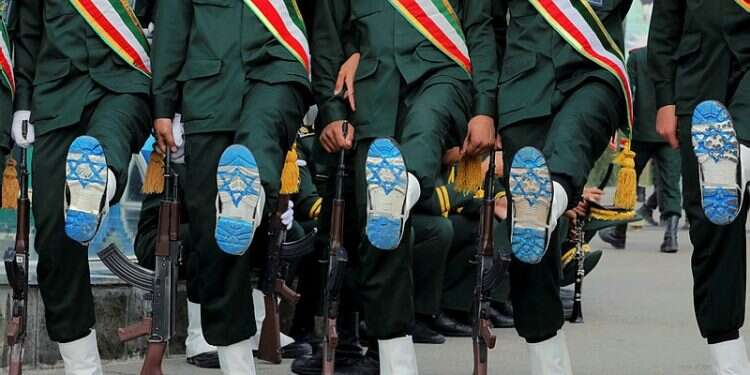For those lacking a full grasp of the intelligence-operational situation, this could sound familiar: The political-defense echelon is speaking in one voice about the threat posed to Israel by Iran.
The level of alarm varies according to the person speaking, but the underlying message is the same. It doesn't matter if it's Prime Minister Benjamin Netanyahu, IDF Chief of Staff Lt. Gen. Aviv Kochavi, or Mossad chief Yossi Cohen (who recently used an event for retired Mossad officials to sound the alarm over the Iranian threat) – all are warning of the looming danger rising against us from the northeast.
Follow Israel Hayom on Facebook and Twitter
This is certainly a strategic development, following several positive years for Israel. The nuclear deal allowed the defense establishment to divert energy and resources to other sectors, mainly toward the endless activity otherwise known as the "campaign between the wars," whereby Israel has tirelessly sought – overtly and covertly – to tackle two main objectives: preventing the transfer of advanced weapons to Hezbollah, and preventing Iran and its Shiite militia proxies from establishing a foothold in Syria.
This activity, which has produced impressive results, handicapped Iran significantly but didn't temper its ambitions. Despite the multiple blows to its interests, the commander of the Quds Force of the Islamic Revolutionary Guard Corps, Qassem Soleimani, continued to pursue his interests along the crescent stretching from Yemen to Lebanon, and Gaza.
The hopes that the US withdrawal from the nuclear deal and the sanctions it has imposed on Iran would trigger its economic collapse or at least spur it to abandon its ambitions – have been shattered almost entirely.
In fact, Iran has become even bolder under this pressure. The downing of the American drone and the attacks on Saudi oil fields (along with its slow yet persistent progress on the nuclear track) have not only shown that Tehran isn't blinking, it is actually upping its ante without hesitation.
Tehran understands: Belligerence pays
This Iranian daring (some would call it brazenness) was strongly bolstered by American policy. The decision not to respond to Iran's aggression in the Persian Gulf, and the recent troop withdrawal from northern Syria –essentially abandoning their Kurdish ally – demonstrated to Iran that not only does its belligerence come without a price, but also pays.
And this is precisely the reason for the concern in Israel. If in the past there was some sense that the radical axis was weakening, today it's clear that at this juncture, at least, it is growing stronger. Iran is increasingly audacious in the Gulf, and we can only assume it will act the same against Israel.
If to this point Tehran has refrained from retaliating against Israel's activities against it, offering only measured responses: Over the past two years Iran attempted to attack Israel four times, compared to a far larger number of Israeli strikes against its assets in Syria – former IDF Chief Gadi Eizenkot noted over 1,000 such strikes between 2017-2018 alone. The current assessment is that moving forward, Iran will retaliate to everything.
The Iranian retaliation could be direct or, more likely, circuitous. From Syria or from Iraq; via terrorist attack, missile fire or drone strike, similar to the one in Saudi Arabia. It appears Israel has good intelligence about Iran's plans, but it isn't perfect; Israel's physical defenses against these potential threats are also solid, but not hermetic.
The operational challenge posed by Iran is significant and requires special preparations in the immediate term. It also means Israel must prepare for the consequences: If it sustains a serious blow, Israel could respond on Iranian soil, and the ensuing skirmish could boil over into a multi-front campaign against Hezbollah, and perhaps elements in Syria and Gaza as well.
We mustn't view all this as an indication of impending war. Israel can do quite a lot to prevent it: from intelligence-diplomatic efforts; to major preventative action to disrupt Iran's machinations and exact a steep price; to making Tehran understand that Israel is prepared to go all the way, so that the ayatollah regime knows it will pay dearly if Israel is harmed.
To this end, Israel must consolidate a coalition as soon as possible, and mainly international legitimacy, to allow it to "go crazy" if need be; and it must also raise awareness among the Israeli public that after years of real quiet, the country could be on the precipice of a new security reality.




